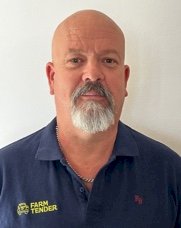Great advice on Financial Farm planning
- By: "Farm Tender" News
- Hay & Fodder News
- Jan 05, 2018
- 571 views
- Share

Rob Brown from Peppin Planners, Deniliquin uses a list of ten checks to help family farms address fundamental financial questions.
These checks include:
Check 1 – Understanding why checklists work.
Along with reflective thinking and learning new tricks to manage our mind to turn information into actions, checklists help us leverage our skills whilst avoiding the automated response and basic instincts that can so readily bias our decisions.
Check 2 – Knowing what success looks like.
Establishing what you want (or need) to achieve for you and your family and what path you want to take to get there is imperative. Plotting the destination and the journey on a timeline can be useful. Done well, a time line does three things:
1. Identifies what is really important
2. Allows ball park estimates for the economic challenge,
3. Makes it easier to see what paths will deliver – on farm or off, or whether goals need to change.
Check 3 – What is your family surplus – on farm and off farm?
Surplus is defined as money generated after operating but before tax, debt and living expenses. This equation gives a consistent measure from year to year.
Ideally surplus is assessed, forecast, tracked and reviewed each year. It’s the measure of your success. It’s not hard and it keeps your eye on the means of achieving your goals.
‘Do not save what is left after spending – Spend what is left after saving!’ Warren Buffett
Check 4 – Tax and Government Benefits.
Are there ways to improve your net wealth to reduce tax costs or increase government benefits, providing the strategy fits with other goals? Tax and benefits are two sides of the same coin; a coin where farmers have more options than any other business.
Farm Management Deposits (FMDs) are likely to improve net worth when any of the following are at play:
1. You are eligible for family tax benefits
2. Your weather/seasons are variable
3. You have had high ‘average’ taxable income over the last 5 years
4. When there are reasons why your tax rate might drop
Superannuation is a way of holding investments that have unique tax and access features. It is not an investment. It is a way of holding investments – off farm, farm land, even water. Selfmanaged funds can even be a way to pay off debt. For some, the
benefits are considerable.
Check 5 – What buffer do you want to cover bad seasons?
This is about having a clear understanding of your capacity for risk and ability to ride out one or more loss years. The steps are:
1. Look at your net worth. What is the limit on the amount you are willing to lose?
2. How many poor seasons can you carry?
3. Is there enough capacity to achieve the surplus you want?
Check 6 – Can the current path do the job? Is there a better way?
These can be sorted in four ways;
1. What needs to be invested?
2. Impact on owner’s workload – for better or worse
3. How will it be funded? Cash, debt or a mix
4. Likely chance of loss and return.
What we often see are strategies that “feel right” but are unlikely to do the job of generating the growth in wealth that meets your aims.
Check 7 – Don’t forget the learning curve!
It’s obvious that there is more risk if you’ve little or no experience. In most careers experience is measured in terms of tens, fifties or hundreds per year: patients, legal cases, plumbing repairs etc. Farming is different: it can include many enterprises per year. And seasons, markets, best practice keep changing. There is less risk investing surpluses in things you know about.
Check 8 – Diversification or hedging your bets
It’s not wrong to put all your eggs in one basket if that needs to be done to achieve your priorities and you know and accept the risks. The difference between a good and bad decision is not the outcome. A bad decision is one where the implications of loss were not assessed. A calculated risk is the foundation of everyone wanting to grow wealth – off farm and on.
Check 9 – Are all family members really aligned?
Alignment is the measure of effective communication.
Where parents/children or siblings are involved it is critical to regularly tick off the big ticket items: current position, private expenditure, tax strategy, surplus, capacity to carry debt.
Effective communication is about protecting relationships and preventing hurt.
Check 10 – Is everyone sufficiently committed?
Commitment and conviction are the measure of whether your aims and strategies are driving your feelings and thoughts. It’s when three things are in place:
1. you are driven to achieve what success looks like for you
2. you feel confident that the path you’ve chosen can deliver
3. you would seriously regret not achieving your aims.
The ten checks covers a variety of family farm businesses and the things they decide are important, whatever that may be.
They can encompass workload, leisure, retirement, succession, tax, government benefits, finance, enterprise mix, scale, asset purchases and off farm investments. Most important of all, they can seriously help with family communication, alignment and conviction.












Share Ag News Via